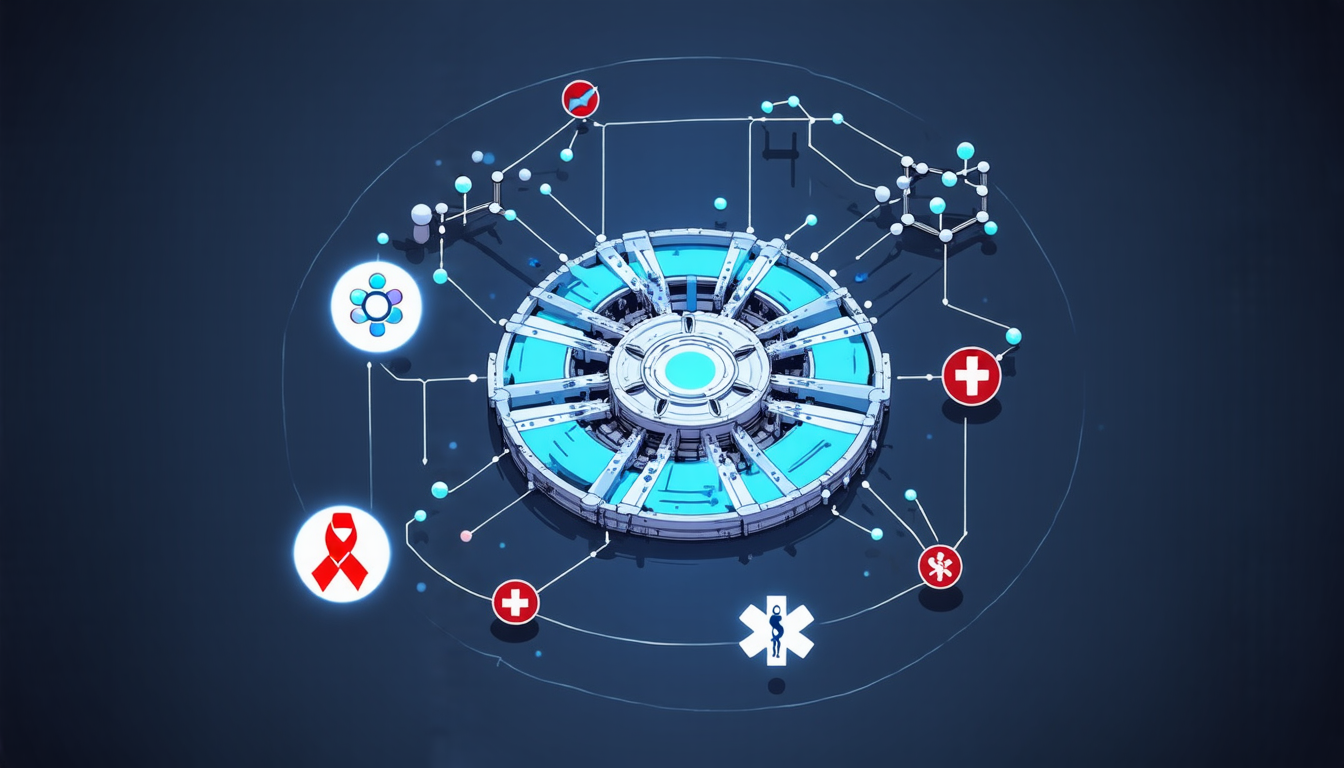Monday 07 April 2025
A novel approach to producing a key isotope used in cancer treatment has been developed by researchers. The method uses a particle accelerator to create deuterons, which are then used to produce lutetium-177, a radioisotope commonly used in targeted radionuclide therapy.
The new production route offers several advantages over traditional methods, including the ability to produce higher-purity lutetium-177 and reduce waste generation. This could lead to more effective treatments for patients with metastatic cancers.
Lutetium-177 is a key component of targeted radionuclide therapy, which involves attaching the radioisotope to a molecule that targets specific cancer cells. Once inside the cell, the lutetium-177 emits beta particles, which destroy the cancerous tissue while leaving surrounding healthy tissue intact.
The traditional method for producing lutetium-177 involves bombarding ytterbium with neutrons in a nuclear reactor. However, this approach has limitations, including the risk of contamination and the need to handle large amounts of radioactive waste.
In contrast, the new method uses a particle accelerator to create deuterons, which are then used to produce lutetium-177 through a series of nuclear reactions. This approach offers several advantages, including the ability to produce higher-purity lutetium-177 and reduce waste generation.
The researchers behind the new production route have developed a compact linear accelerator that can be used to produce large quantities of deuterons. The accelerator is designed to operate at relatively low energies, making it more efficient and cost-effective than traditional methods.
In addition to its potential applications in cancer treatment, the new production route could also be used to produce other radioisotopes used in medical imaging and therapy. The researchers believe that their approach has the potential to revolutionize the field of nuclear medicine by providing a reliable and cost-effective way to produce high-purity radioisotopes.
While the new method is still in its early stages, the researchers are optimistic about its potential to improve cancer treatment outcomes. They plan to continue refining the production route and testing its feasibility for large-scale commercial use.
Cite this article: “Accelerating Cancer Treatment: Breakthroughs in Deuteron-Based Production of Lutetium-177 Radioisotopes”, The Science Archive, 2025.
Cancer Treatment, Radioisotope, Lutetium-177, Targeted Radionuclide Therapy, Particle Accelerator, Deuterons, Nuclear Reactions, Medical Imaging, Nuclear Medicine, Radiotherapy







